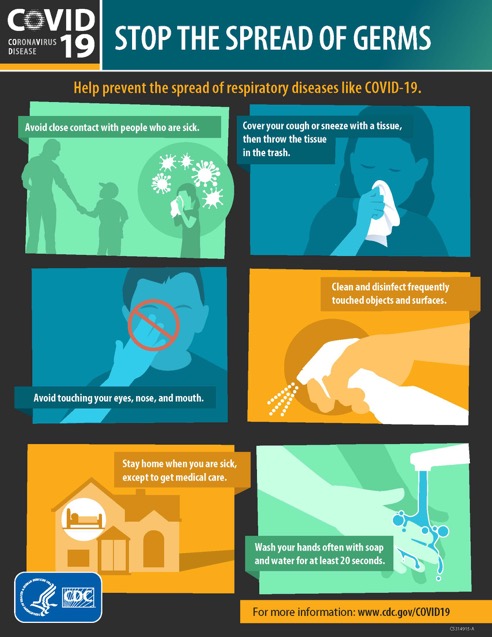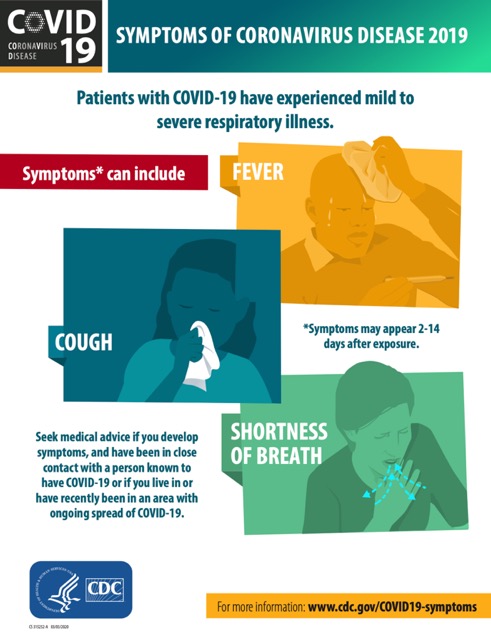Specific to Post Surgical ALS patients
We here at Advanced Laparoscopic Surgeons understand that the COVID 19 Pandemic has created concerns and anxiety. We want to assure all of our patients that we are taking the utmost measures to prevent disease spread for the safety of our patients and staff.
- All frequently used surfaces of the office are sanitized and every one of our staff members is heeding the official CDC recommendations.
- Our preoperative and dietary classes have been reduced to create distancing. Your appointment may be rescheduled.
- Please try your best to come without visitors to appointments. If you absolutely need to present to the office with a visitor, limit to 1 ADULT only. This is in accordance with the government’s social distancing initiative.
- At this time it is of the utmost importance that patients follow the dietary guidelines strictly to ensure a strong and healthy immune system.
- Make sure to be measuring protein intake to be minimum 70-80g protein
- Make sure to be drinking adequate amounts of water ~64 ounces, that you are urinating regularly and that it is clear
- Make sure to be taking all of your vitamins! – In NJ many patients are vitamin D deficient – Vitamin D has been shown to aid the body’s immunity!
- Zinc and Vitamin C supplementation are good options if you are feeling sick.
Staying On Track
All of our patients should be very proud of their hard work in losing weight and changing their lives! We understand that ‘emotional’ and ‘stress’ eating is a coping mechanism to help alleviate negative feelings. Grazing and binge eating are other forms of emotional/stress eating. We want to make sure that our patients continue to live and eat healthy even during times of stress and quickly identify and curtail these behaviors. Here are some tips to prevent weight gain and poor eating habits.
- Spend some time away from the media. As hard as it is, turn off the television which is feeding your worry! Concentrate on things that cause positive thinking and positive feelings.
- If weather permits, go outside and enjoy nature, take a deep breath and realize that you will get through this.
- Join our online Facebook Support Group! It continues regularly and discussions are ongoing 24 hours a day. Email Patc@alsnj.com if you are not already a member for access only for our patients.
- If you have access to home exercise equipment then start doing something physical whether its treadmill, exercise bike, lifting weights, or following an online workout video – Exercise releases endorphins!
- Meditate – Use breathing exercises to alleviate anxiety. Yoga and Stretching are also good ways to reduce worry.
- Seek Social Support
- Reach out to friends and family to discuss the way you are feeling as a source of emotional support. How can you help others to get back on track? Alone at home with the television will make anyone go stir crazy.
- Food Prep and stick to it! – Prepare healthy protein based meals and stick to them. Don’t forget drinking adequate amounts of water and taking your vitamins!
Specific to Everybody
FROM THE CDC:
Know How it Spreads
- The best way to prevent illness is to avoid being exposed to this virus.
- The virus is thought to spread mainly from person-to-person.
- Between people who are in close contact with one another (within about 6 feet).
- Through respiratory droplets produced when an infected person coughs or sneezes.
- These droplets can land in the mouths or noses of people who are nearby or possibly be inhaled into the lungs.
Take steps to protect yourself
Clean your hands often
- Wash your hands often with soap and water for at least 20 seconds especially after you have been in a public place, or after blowing your nose, coughing, or sneezing.
- If soap and water are not readily available, use a hand sanitizer that contains at least 60% alcohol. Cover all surfaces of your hands and rub them together until they feel dry.
- Avoid touching your eyes, nose, and mouth with unwashed hands.
Avoid close contact
- Avoid close contact with people who are sick
- Put distance between yourself and other people if COVID-19 is spreading in your community. This is especially important for people who are at higher risk of getting very sick.
Take steps to protect others
Stay home if you’re sick
- Stay home if you are sick, except to get medical care. Learn what to do if you are sick.
- Cover your mouth and nose with a tissue when you cough or sneeze or use the inside of your elbow.
- Throw used tissues in the trash.
- Immediately wash your hands with soap and water for at least 20 seconds. If soap and water are not readily available, clean your hands with a hand sanitizer that contains at least 60% alcohol.
- If you are sick: You should wear a facemask when you are around other people (e.g., sharing a room or vehicle) and before you enter a healthcare provider’s office. If you are not able to wear a facemask (for example, because it causes trouble breathing), then you should do your best to cover your coughs and sneezes, and people who are caring for you should wear a facemask if they enter your room.
- If you are NOT sick: You do not need to wear a facemask unless you are caring for someone who is sick (and they are not able to wear a facemask). Facemasks may be in short supply and they should be saved for caregivers.
Clean and disinfect
- Clean AND disinfect frequently touched surfaces daily. This includes tables, doorknobs, light switches, countertops, handles, desks, phones, keyboards, toilets, faucets, and sinks.
- If surfaces are dirty, clean them:Use detergent or soap and water prior to disinfection.


For More Detailed Information: https://www.cdc.gov/coronavirus/2019-ncov/index.html








